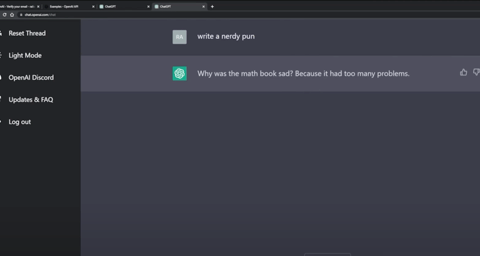The Future of AI in Salesforce: Embrace or Be Replaced?
Discover how AI is transforming Salesforce and learn the skills you need to stay competitive in an AI-driven business landscape.
8/26/20244 min read


Artificial intelligence (AI) is no longer just a buzzword—it's a reality that's transforming industries at an unprecedented pace. In fact, AI adoption in business processes has grown by 270% in the past four years. But with this rapid evolution comes a pressing concern: Could AI eventually replace you? The short answer is yes—if you don’t adapt. But here’s the twist: It's not AI that will replace you; it’s the people who know how to wield AI effectively.
In this article, we’ll explore how AI is reshaping the Salesforce landscape, the skills you need to stay ahead, and why mastering AI tools like ChatGPT and Adept could be your ticket to future-proofing your career. Expect actionable insights grounded in industry expertise, with a focus on how to maintain your competitive edge in an AI-driven world.
Understanding the Impact of AI
In the last month, we've all had a front-row seat to witness what ChatGPT, a text-based AI model, is capable of. It's perhaps the best example so far of how useful AI can be, yet it still has its limitations. ChatGPT, as it exists now, can only process and respond to text-based prompts. It can talk, but it can't take action—at least not yet. The significant question we must consider is: How long will it be before AI tools can both talk and take action in your Salesforce orders?


AI Tools: The New Frontier in Salesforce
The answer to that question might be sooner than you think. One of the tools currently in development that has caught my attention is called Adept. Although still in the testing phase, Adept allows you to communicate with Salesforce by giving it commands, such as logging activities, creating records, and more. The developers behind Adept are even working on high-abstraction workflows, meaning that ultra-productive admins could soon have an incredibly powerful tool at their disposal.
Imagine this: You could ask AI to complete multiple actions in Salesforce—like deactivating a user account, generating a report of closed-won opportunities from the previous fiscal year, and even creating a flow in the sandbox—all in one go. The potential for efficiency is staggering.
The Reality Check: AI Isn’t Perfect—Yet
However, it's essential to recognize that these tools aren’t foolproof. You might be thinking, "But AI tools don't always give correct answers or follow our best practices." And you'd be right. This is why, despite the rapid advancement of AI, we can't afford to slack on our personal knowledge and skills. AI is improving at an exponential rate, and its adoption is happening faster than ever before. It took ChatGPT only five days to reach one million users—a testament to how quickly AI tools are being integrated into daily workflows.
But just because these tools don’t yet master our best practices doesn’t mean we should dismiss them. On the contrary, we need to adapt and evolve alongside them.
How to Stay Competitive in an AI-Driven World
So, how do we ensure that we don’t get replaced by AI? There are a couple of crucial strategies to consider:
1. Master Prompt Engineering
Prompt engineering is the art of effectively communicating with AI. To get the best results from AI tools, you need to know how to craft prompts that guide the AI toward delivering valuable outputs. This skill is becoming increasingly important as AI tools become more integrated into our work processes. Knowing how to talk to AI in a way that yields great results consistently is not just a bonus—it's a necessity.
2. Fine-Tune and Manage AI
Every company is unique, with its own brand, products, services, selling strategies, and customer service expectations. When a company leverages AI tools, someone needs to ensure that the AI understands these unique facets. For instance, if your sales team follows a specific framework for selling, the AI chatbot that interacts with prospects must also adhere to this framework. This requires modifying the AI’s datasets to ensure it becomes a true brand ambassador, capable of engaging with prospects in a way that reflects your company’s values and strategies.
But it doesn’t stop there. You also need to manage how the AI takes action—like inputting data into Salesforce fields—ensuring that it does so accurately and efficiently. This kind of fine-tuning and management is critical for staying competitive in an increasingly AI-driven world.
Predictions for the Near Future of AI in Salesforce
Let’s look ahead at what the near future might hold for AI in Salesforce, starting with different roles within the Salesforce ecosystem.
1. For Admins
Get ready to see a lot of jokes about needing five years of experience for a tool that’s still in beta. Nevertheless, familiarity with AI tools will soon be a significant advantage. Admins should also continue to work on mastering effective prompts, as this will likely become a skillset that companies test for during the hiring process.
2. For Developers
Fine-tuning AI tools is where the magic happens, but this isn’t a low-code process. I expect this responsibility to fall to highly capable Salesforce developers who are well-versed in APIs, Python, JavaScript, and other programming languages. These developers will play a crucial role in customizing AI tools to meet specific business needs.
3. For Partners
Partners who invest early in learning about and offering AI-related services to clients will be the big winners, especially in managed services. As AI tools become more prevalent, clients will increasingly look to their partners for guidance on how to integrate and optimize these tools within their Salesforce environments.
Embrace AI, or Risk Falling Behind
In conclusion, the rise of AI is both a challenge and an opportunity. It’s not AI itself that will replace us, but rather those who can harness its power effectively. To stay competitive, you need to embrace AI tools, master prompt engineering, and learn how to fine-tune and manage AI to align with your company’s unique needs.
The future of AI in Salesforce is bright, and those who adapt will thrive. So, what do you think? I’m fascinated by how AI might impact Salesforce in the near future, and I’d love to hear your thoughts in the comments below. Don’t forget to subscribe for more content like this. Thanks for reading!
Ready to scale?
Weekly tips on AI automation, lead gen, and scaling B2B companies.
Let's talk growth
travis@conceptandcopy.com
© 2024. All rights reserved.
